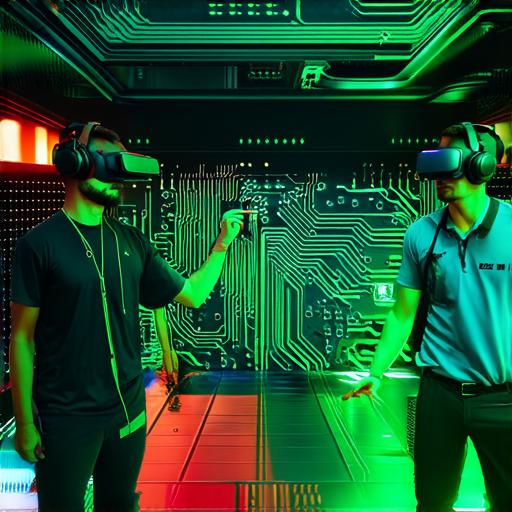Virtual reality (VR) is a rapidly growing technology that has already found its way into various industries, such as gaming, healthcare, and education. As VR continues to evolve, it’s essential for professionals to understand the competencies required to work in this immersive environment. In this article, we will explore the key skills needed to succeed in virtual reality, including technical expertise, creativity, communication, and adaptability.
Technical Expertise
Virtual reality requires a solid understanding of technology, particularly in the areas of programming, software development, and hardware engineering. Professionals with experience in these fields are highly sought after for their ability to create immersive experiences that can be used across various industries. Additionally, knowledge of virtual reality tools and platforms such as Unity, Unreal Engine, and SteamVR is essential for building and deploying VR applications.
Creativity
Virtual reality provides an opportunity for professionals to explore new ways of thinking and approach problems from different perspectives. To succeed in this environment, individuals must be able to think creatively, experiment with new ideas, and come up with innovative solutions to complex challenges. This requires a combination of technical expertise and artistic ability, as well as an understanding of human behavior and psychology.
Communication Skills
Effective communication is critical for success in virtual reality, particularly when working with cross-functional teams. Professionals must be able to articulate their ideas clearly and effectively, as well as listen actively to the input of others. They should also have strong collaboration skills, including the ability to work with designers, developers, project managers, and other stakeholders to bring VR projects to life.

Adaptability
Virtual reality is a constantly evolving technology, and professionals must be able to adapt to new tools, techniques, and platforms as they become available. They should also be able to learn quickly and stay up-to-date with the latest trends in the industry. In addition, they should be willing to take on new challenges and embrace change, as virtual reality is a rapidly changing field that requires constant innovation and adaptation.
Summary
Virtual reality is an exciting and rapidly growing technology that offers new opportunities for professionals across various industries. To succeed in this environment, individuals must have a combination of technical expertise, creativity, communication skills, and adaptability. By developing these competencies, professionals can stay ahead of the curve and take advantage of the many benefits that virtual reality has to offer.
